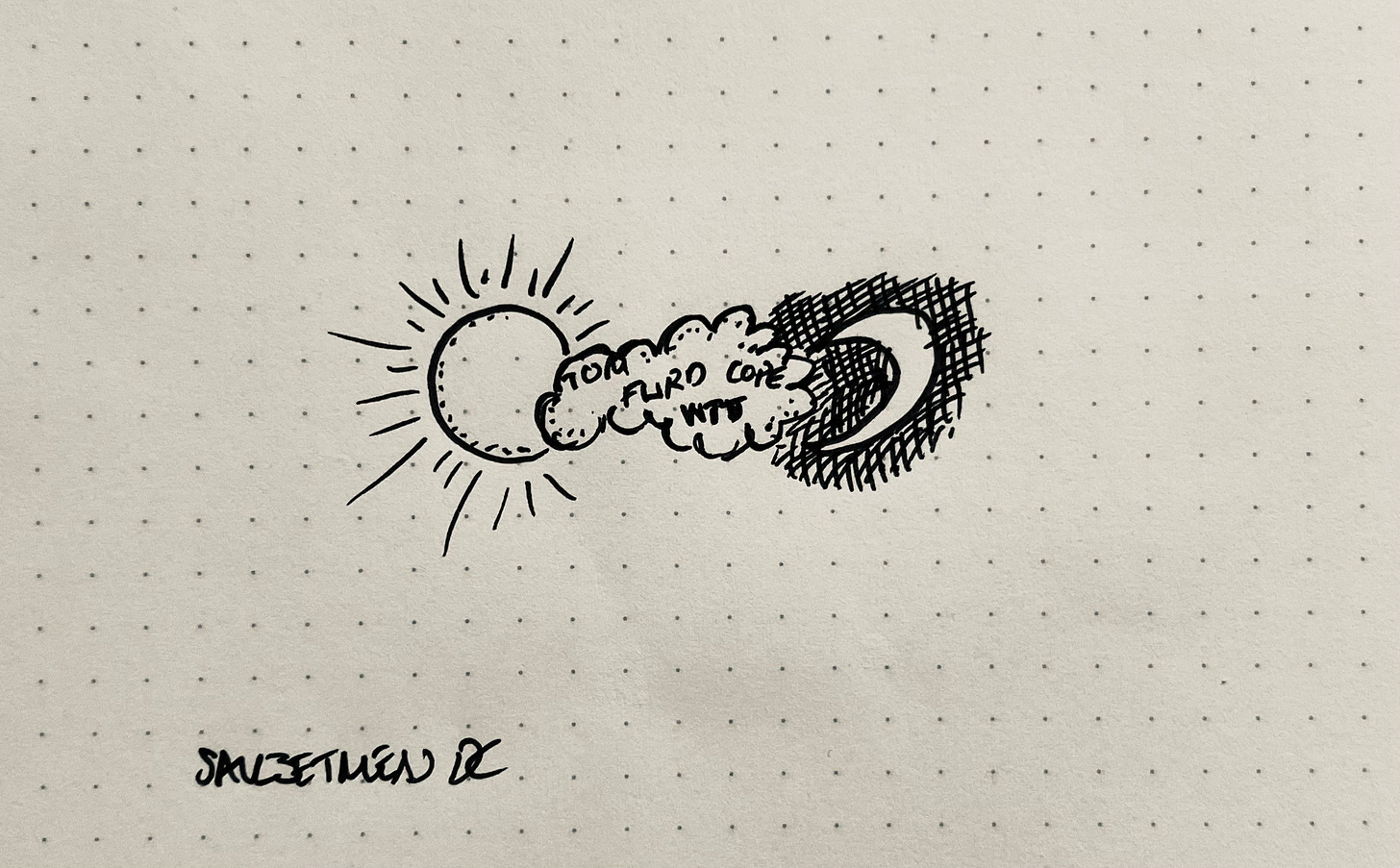All you have is today.
What could be more important than making the most of each one?
But if you are anything like me, and I know a lot of people are, the biggest barrier is often the person inside, the part of you that, for some inexplicable reason, wants to get in your own way.
It can stop you appreciating the moment, clouding even the brightest times with fears about what could happen in some possible future.
It can stop you getting even the basic things done.
It can stop you planting seeds that could shape that future for the better.
It can stop you being the person you really want to be.
So how do you get past it? How do you get out of your own way?
I have four simple systems, or perhaps it’s better to call them ‘Coping Strategies’, that help me get out of my own way more often.
Note. For all of these, I use a journal, it is my constant companion in life, I use it a lot, or a little depending on the ebbs and flows of the days, the week, the months and the years, but it is always there and it is very useful for so many reasons, this is just another example.
Start everyday with T.O.M.
We will all have stuff that’s there when we wake up.
Whether we like it or not, it’s going to be top of mind, so I find it best to just get that stuff out, on a page.
It doesn’t have to be organised, it doesn’t have to make sense, but it does help to write it down.
Sometimes this is just a list of a few things that need your attention, the urgent admin stuff, the things that kept you up at night (more on that later), it can take a few seconds, it becomes clear what I need to do, or, it can take some time…
Especially so if there is stuff that has deep emotional traction: where you are feeling blocked, or worried, or angry, or disappointed, or disjointed.
This is where another system can be very cathartic, allowing you to move through and on from how you feel.
Step F.W.R.D.
What does Fear say?
Our brains are wired to find problems, to see fault, this allows you to let it all out. Depending on how you are feeling, this can be a torrent of awfulness, or a more balanced critique.
Let it come out, all of it.
When ‘it’ has run out of steam, I’ll simply ask: Is there anything else? This will usually get something more, often a creative way of framing what you haven’t done, or what you lack. It’s like wringing a towel one more time.
I then ask another question.
What does Wisdom say?
Because you have been through the negative stuff, and framing it as ‘Fear’, asking this question afterwards seems to allow a wiser, more balanced part of you to step forward.
It will let you step back and take longer view, a more balanced perspective, an alternative credible argument, or something in between.
Where fear is often a rage, wisdom is calm and collected.
As before, let ‘it’ speak, let it interrogate, let it present. Once it has finished, I will then ask one last question:
What can Resolve these? and what should we Do?
Because you have forced perspectives, and can now, in some way, see both the problem and solutions in a clearer way, asking yourself what should you do, gives a different kind of answer to the one you would have answered before.
It is particularly helpful when combined with the next step…
Define your What Three Things: W.T.T.
I then ask What Three Things are most important for me to do right now? Which three things, that if I do them, will make the others easier? Which ones will make me feel most satisfied when I have done them? What are my fulcrums, those things that have maximum leverage on other things I need to do?
Of those three, choose one and commit time to do it.
If you are still struggling and feeling a bit out of sorts, there is also another set of W.T.T. I use - What Three things I am most Grateful for? There is much evidence that a gratefulness practise is a powerful tool in better mental health, it is often the antidote to envy, to feeling bad, definitely worth a try.
Close Of Play Exploration: C.O.P.E.
The last one is also the last thing I do in a day.
It can be a few mins in your head or written down:
What didn’t work? (if this written I put an ‘-’ next to each one).
What worked? (‘+’ next to each one).
Explore: What might I do differently tomorrow?
It somehow captures enough of what has happened to close the door on those things, good or bad.
It seems to stop the potential rumination that can get in the way of sleep.
Then asks you to do something a little different, to be someone a wee bit different the following day.



